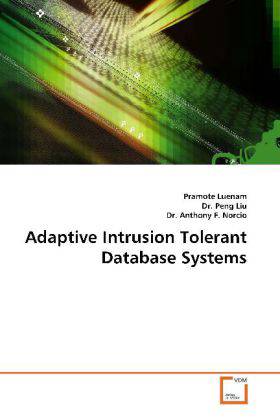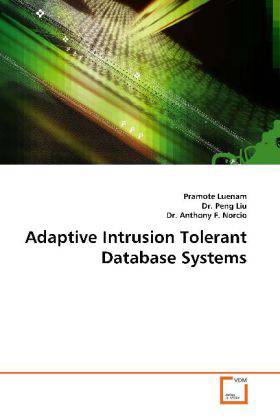
- Afhalen na 1 uur in een winkel met voorraad
- Gratis thuislevering in België vanaf € 30
- Ruim aanbod met 7 miljoen producten
- Afhalen na 1 uur in een winkel met voorraad
- Gratis thuislevering in België vanaf € 30
- Ruim aanbod met 7 miljoen producten
Zoeken
Adaptive Intrusion Tolerant Database Systems
Pramote Luenam, Peng Liu, Anthony F Norcio
Paperback | Engels
€ 67,45
+ 134 punten
Omschrijving
Intrusion Tolerant Database System (ITDB) is a new paradigm for secure database systems that can detect intrusions, isolate attacks, contain damage, and assess and repair damage caused by intrusions. What makes ITDB superior to conventional secure approaches is that it has an ability to reconfigure. Thus, it can yield much more stabilized levels of trustworthiness under environmental changes. However, the reconfiguration faces the problem of finding the best system configuration out of a very large number of configuration sets and under multiple conflicting criteria, which is a NPhard problem. This study focuses on two aspects of addressing adaptation problems in ITDB. First, a rule-based mechanism and neuro-fuzzy technique are proposed to apply to the adaptation model. Second, this study examines the effects of the rule-based adaptive controller and the neuro-fuzzy adaptive controller on the adaptation. The purpose of this is to evaluate which of these techniques can yield higher stabilized levels of trustworthiness, data integrity, and data availability in the face of attacks.
Specificaties
Betrokkenen
- Auteur(s):
- Uitgeverij:
Inhoud
- Aantal bladzijden:
- 172
- Taal:
- Engels
Eigenschappen
- Productcode (EAN):
- 9783639114515
- Verschijningsdatum:
- 29/12/2008
- Uitvoering:
- Paperback
- Formaat:
- Trade paperback (VS)
- Afmetingen:
- 152 mm x 229 mm
- Gewicht:
- 235 g

Alleen bij Standaard Boekhandel
+ 134 punten op je klantenkaart van Standaard Boekhandel
Beoordelingen
We publiceren alleen reviews die voldoen aan de voorwaarden voor reviews. Bekijk onze voorwaarden voor reviews.











